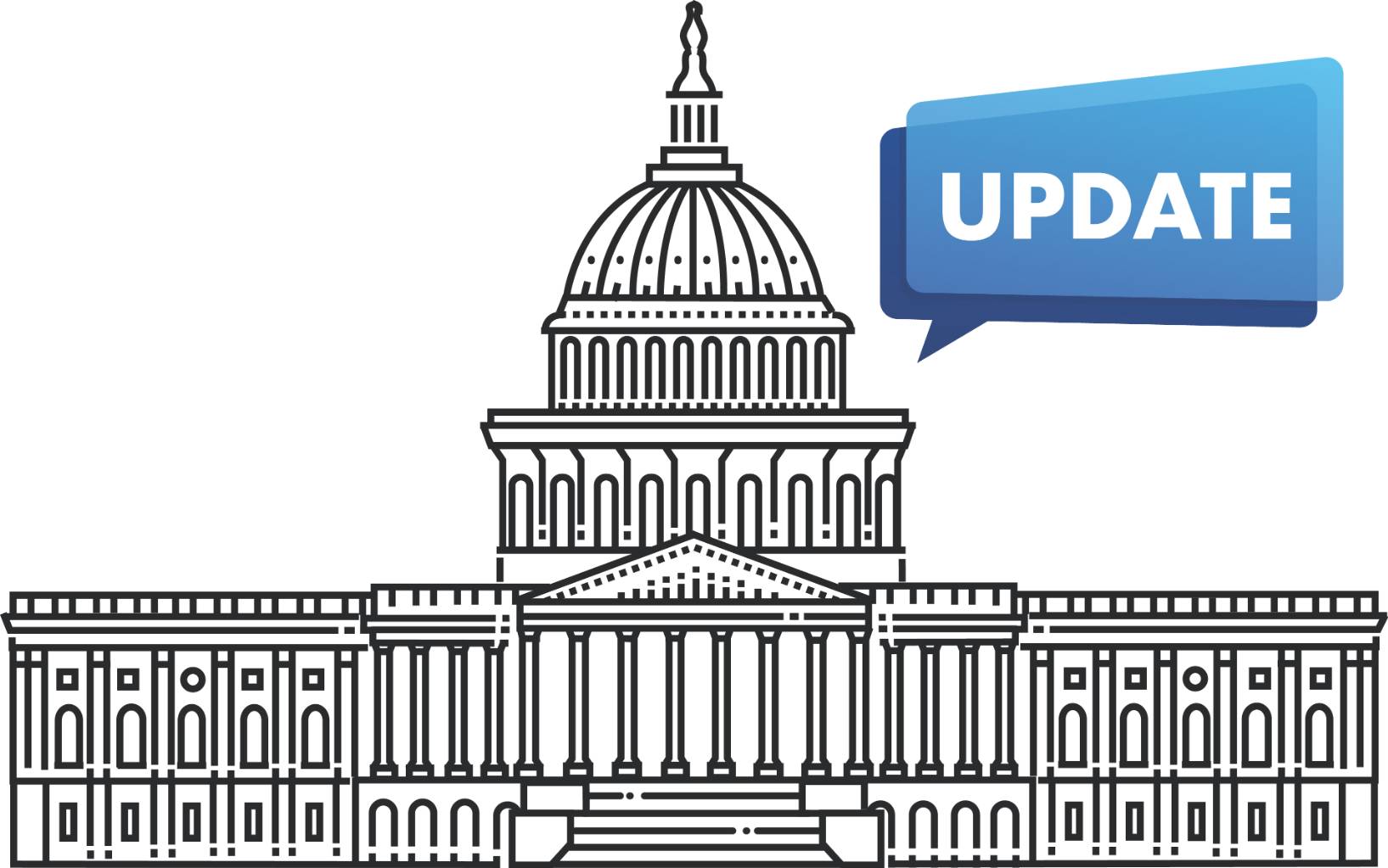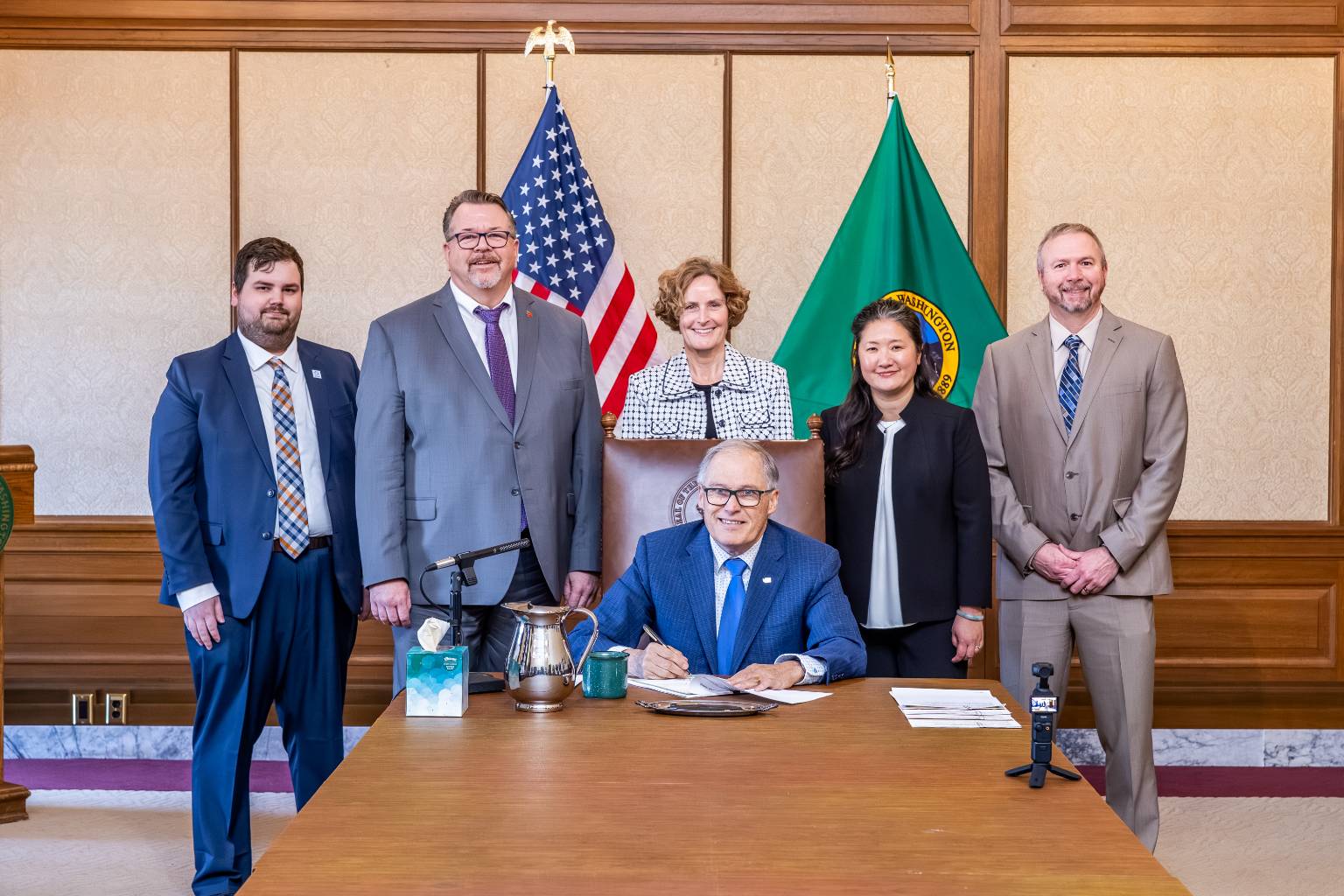Updating and Future-Proofing Washington Accountancy Act
April 22, 2024
by Mike Nelson

For the first time in 23 years, the Washington Accountancy Act (the Act) underwent significant updates on March 7, with the signing of House Bill 1920, sponsored by Representative Eric Robertson, and signed by Governor Jay Inslee. The bill passed unanimously from both the State House of Representatives and Senate before reaching the governor’s desk and will be effective June 6.
During the past few years, the WSCPA collaborated with stakeholders around the state and nationally to update and streamline the Act in Washington. The Act governs the requirements for becoming a CPA, outlines the standards of work completed by CPAs, and identifies the specific acts requiring a CPA license. The last major update to the Act occurred in 2001 with the introduction of the framework for CPA license mobility and reciprocity in Washington. Since then, minor changes have been made to address specific issues, but these led to complexities and language misalignment with the Uniform Accountancy Act (UAA). The UAA serves as the model language that all states aim to follow to allow the profession to maintain individual and firm mobility throughout the states, while establishing standard practices on which the public can rely. After more than two decades, it was imperative to simplify the Act in Washington.
The bill made several changes, such as simplifying redundant language for CPA firm licensing and reorganizing the sections on prohibited and non-prohibited practices for enhanced readability and understanding. In addition, the legislation adopted longstanding UAA language concerning firm ownership and acts discreditable, among others.
The most substantial change in the bill is granting the Washington State Board of Accountancy (WBOA) greater flexibility to evaluate and accept qualifications for CPAs from other jurisdictions to practice in Washington under mobility. This flexibility arises from removing the statutory requirement of obtaining 150 semester hours of education, passage of the CPA exam, and one year of experience and replacing it with the term “substantial equivalency” as determined by the WBOA. The WBOA now has the flexibility to make the determination of substantial equivalency for CPAs from a state that may no longer be deemed substantially equivalent by NASBA who still wish to practice in Washington.
This flexibility is a great asset for Washington as national trends are leading toward a period of at least temporary loss of mobility in some jurisdictions. Several states have introduced and are attempting to pass legislation that would create an alternative pathway to initial licensure. For instance, Minnesota introduced legislation that would allow two pathways to CPA licensure. Both the paths would include passing the CPA exam with different combinations of experience and education. One path would keep the existing requirements to have 150 hours of education and one year of experience, while a second option would require 120 hours of education and two years of experience. The National Association of State Boards of Accountancy (NASBA) and American Institute of CPAs (AICPA) have stated this approach would break mobility.
While Minnesota and other states consider these changes for incoming CPAs, the issue of how to treat existing CPAs has become a larger concern. Based on the UAA, nearly every state, including Washington, maintains two paths through which individual CPAs obtain license mobility. Either a) the other state has standards that are substantially equivalent to initial licensing requirements in the home state, or b) an individual licensee has met substantially equivalent standards. If a state changes their initial licensing standards and loses consideration under option a, then a licensee’s only path would be determined based on their individual circumstances. At the time that mobility was introduced, the existing CPAs who had met the previous 120-hour education requirements were granted mobility based on the state’s standards. Prior to Washington’s Act being updated this year, with Washington’s old law requiring the individual to obtain 150 hours of education, a licensee from Minnesota who was licensed in the 1990s under the old rules of 120 hours of education would not be eligible today to practice under mobility in Washington. The flexibility given through this bill to the WBOA allows them to maintain mobility for existing CPAs from states that may move to change their licensing requirements.
As individual states consider altering their requirements, both the AICPA and NASBA established task forces and work groups to consider national proposals for changes to the licensing process that will hopefully maintain mobility or only temporarily and partially lose it in some states depending on the changes proposed. Those recommendations are expected in the summer or fall. Granting the WBOA the authority and flexibility to set rules for all aspects of CPA licensure in Washington positions our state to adopt potential new national standards seamlessly whenever they arise.
The cleanup of the existing Act and the flexibility for Washington to adapt to a changing national landscape will enable more proactive regulatory response and a smoother transition for future changes.

Pictured here with Governor Inslee are (l. to r.) Michael Nelson, WSCPA Manager of Government Affairs; Rep. Eric Robertson; Lisa Thatcher, WSCPA Lobbyist; Jennifer Sciba, Washington State Board of Accountancy (WBOA) Deputy Director; and Mike Paquette, CPA, WBOA Executive Director.

Mike Nelson is WSCPA Manager of Government Affairs. Contact Mike by email.
This article appears in the spring 2024 issue of the Washington CPA magazine. Read more here.
illustrations: © iStock/cgdeaw, © iStock/GreenTana, © iStock/Oleksandr Hruts
